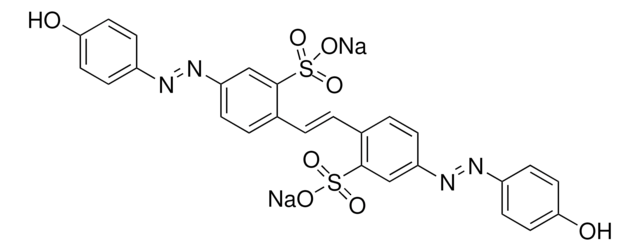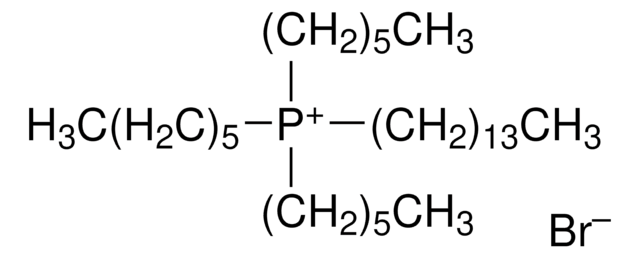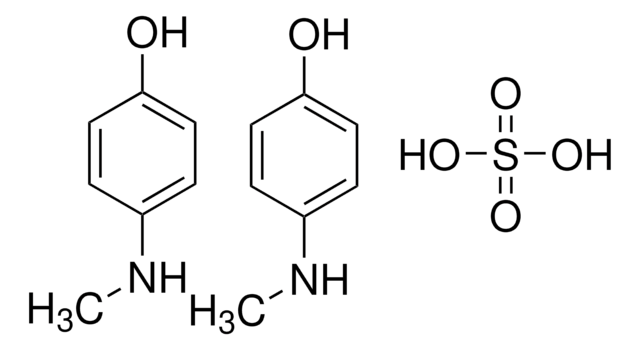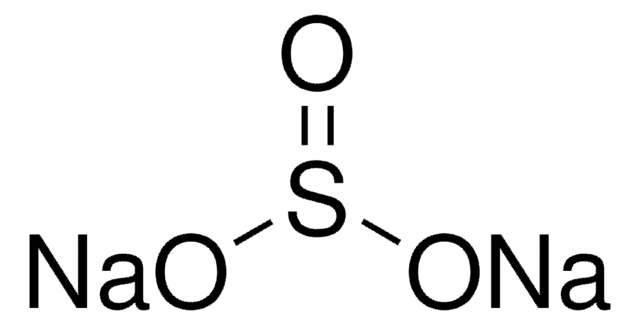88390
Thiazole Yellow G
for microscopy (fluorescence indicator), adsorption indicator
Synonym(s):
Direct Yellow 9, Mimosa, Titan Yellow
About This Item
Recommended Products
grade
adsorption indicator
for microscopy (fluorescence indicator)
Quality Level
form
powder
solubility
hot water: 0.1 g/10 mL
εmax
≥250 at 397-407 nm in water
application(s)
diagnostic assay manufacturing
hematology
histology
storage temp.
room temp
SMILES string
[Na+].[Na+].Cc1ccc2nc(sc2c1S([O-])(=O)=O)-c3ccc(N\N=N\c4ccc(cc4)-c5nc6ccc(C)c(c6s5)S([O-])(=O)=O)cc3
InChI
1S/C28H21N5O6S4.2Na/c1-15-3-13-21-23(25(15)42(34,35)36)40-27(29-21)17-5-9-19(10-6-17)31-33-32-20-11-7-18(8-12-20)28-30-22-14-4-16(2)26(24(22)41-28)43(37,38)39;;/h3-14H,1-2H3,(H,31,32)(H,34,35,36)(H,37,38,39);;/q;2*+1/p-2
InChI key
CZIRZNRQHFVCDZ-UHFFFAOYSA-L
Looking for similar products? Visit Product Comparison Guide
General description
Application
Storage Class Code
11 - Combustible Solids
WGK
WGK 3
Flash Point(F)
Not applicable
Flash Point(C)
Not applicable
Personal Protective Equipment
Regulatory Listings
Regulatory Listings are mainly provided for chemical products. Only limited information can be provided here for non-chemical products. No entry means none of the components are listed. It is the user’s obligation to ensure the safe and legal use of the product.
JAN Code
88390-100G:
88390-BULK:
88390-5G:
88390-25G:
88390-VAR:
Choose from one of the most recent versions:
Already Own This Product?
Find documentation for the products that you have recently purchased in the Document Library.
Customers Also Viewed
Our team of scientists has experience in all areas of research including Life Science, Material Science, Chemical Synthesis, Chromatography, Analytical and many others.
Contact Technical Service













